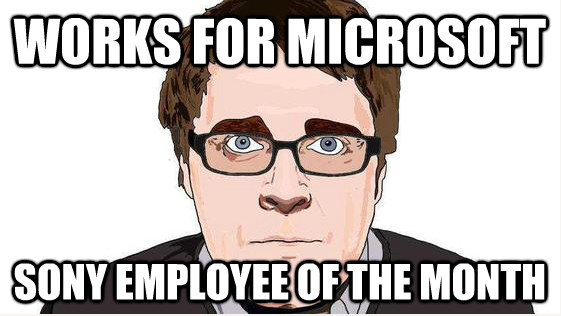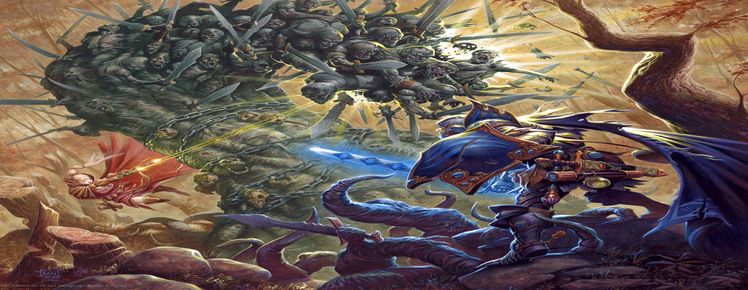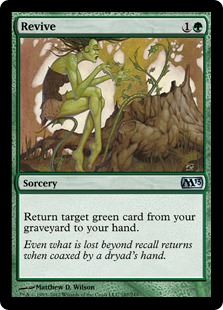Developer Mismatch: Why the Scorn for Gamers?

In my last article I discussed exactly why I believe the issue over hardcore is faulty. By the time this goes out, I’ll be back from my holiday and hopefully it’ll have generated some interesting discussion. This article builds off the other article, so if you’d kindly have a look at the article (link here) before we continue.
Are we sitting comfortably?
Good, then let’s begin.
Superiority, thy name is developer
I’m not the only one to notice the level of disdain given to the average gamer by pretty much everyone. Even I did it, and I’m apparently a part of the community. However special mention must be given to developers who take the gold medal in looking down at gamers.
Despite, you know, their livelihoods being funded by these same people.
Such disdain isn’t uncommon for those who provide you products and services, especially when you act like a twit and ask silly questions, but it is rare that such disdain becomes public knowledge to the extent that it will make news.
I’m sure we all remember Adam Orth and his condescension towards gamers who, quite rightly in my opinion, believe that an always online console is a bad idea pretty much 100% of the time. Incidentally, the backtracking Microsoft did more or less proved that it wasn’t something deemed essential to the console because they would have stuck with it otherwise.
But that is beside the point; the point is that Adam Orth is by far from unique in the industry. From companies like EA to people like Cliffy B, to some degree they’ve made their contempt for the average gamer and their concerns quite clear. And most of them don’t ever really suffer for it.
It’s common, and in vogue almost, to disdain the gamer (and yes, I am aware of the irony of that statement). To assume they know nothing and can only know nothing. To discount them outside the gravest of situations and times, and bend the knee only to the degree required in order to win back the absolute minimum amount of trust.
If they even bother to the latter at all.
There are a few developers out there, such as Paradox or CD Project Red or Stardock that will eschew such a dynamic but to say they are few and far between would be a gross understatement.
The question is however, why? Why is this occurring? And why now?
To answer that, let’s look back to the last article I wrote.
Resentment is Easy to Breed, Hard to Kill
The hardcore fallacy, if you remember, was a combination of the no true Scotsman fallacy coupled with the mercurial nature of the definition of hardcore. When put together with the rather damning praise that such a title confers, you get a storm to define, redefine and define all over again what it truly means to be hardcore.
The ultimate result is to turn the majority of gamers against their other fellow gamer in a us vs them debate over something genuinely meaningless. So where do the developers fit into this?
A by-product of the hardcore fallacy is emotion. Mostly rage, but it tends to manifest in knee-jerk reactions to anything that happens. If it’s a good thing, then expect an outpouring of emotion equivalent to winning the lottery. If it’s a bad thing, then expect the rage of seeing your grandmother being kicked to the floor for her purse.
Extremes are the name of the game.
And if it’s anything extremes are good at, especially when they change upon the whims of a butterfly in south China, is wearing you out. Draining you of your passion and energy. The end result is that you pull out, for your own well-being and sanity.
Luckily, nothing lasts forever and it’s fixed relatively quickly but it’s not a positon anyone wants to be in, especially if your livelihood relies upon managing this group’s expectations and releasing games to them. And if you love your job, as most game developers tend to (or atas many developers claim) then you come to resent the people that make you reconsider doing the thing you love.
Or at least I would, if a group kept pushing me to the brink time after time for doing what I love. I’d quickly either stop loving it, find a way to ignore them and get someone else to deal with them or put up with it. The resentment is a given in all three options, no-one likes other people ruing their stuff, especially if it’s something they love.
Gamer Redux, Not Everyone is Stupid
End result is that because of the mercurial nature of the gaming community as a whole, you will almost inevitably end up with resentment being bred, this can be mildly supported by the fact that game development tends to be a young man’s game. Unless you move further up the chain of your game company, and thus away from the actual nitty gritty development, you tend to see the developers move onto other pastures, or away from where they made their name.
Luckily however, while the resentment is bred almost inevitably if you keep too much into the industry, and to the level that many gamers would like, it’s not the only end result. Because not every gamer is an idiot. Most don’t even speak out on the internet at large, meaning they cannot fully be blamed for this event.
Of those that do most tend to be, I hope, of the breed that is fair and rational. Capable of understanding the difference between a minor mess up and cluster fuck of epic proportions. It’s the minority that ruin it, but sadly they are the minority most people tend to see.
The other thing that can keep it from becoming a huge issue that you can form small communities fairly quickly around certain developers, once done it tends to provide a welcome source of encouragement, even it a tad bit sycophantic at times. Such wells of support serve to convince people that it’s not so bad.
In conclusion, developers show contempt for gamers because we do earn it, if we don’t want to be associated with the idiots we should make that clear. At the same time however, it would be nice for developers to know (or be reminded by the PR people they have) that not all people act like that. And how you treat the troublemakers will influence how others perceive you.












Leave a Reply